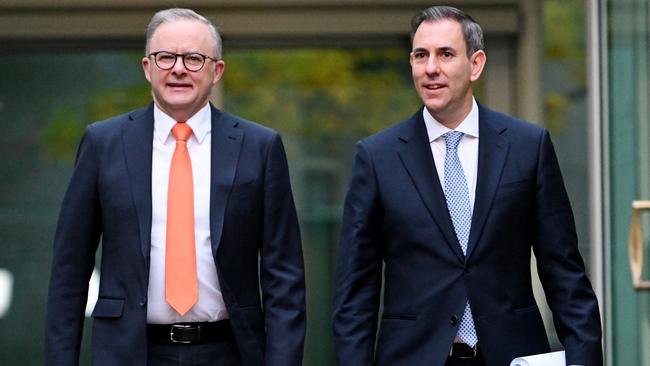Housing gets a boost from tradies but stamp duty hit remains
The budget’s focus on housing was welcomed by the industry, despite it being another missed opportunity to address stamp duty in the face of the affordability struggle.

Residential and commercial property developers have been buoyed by the expansionary budget, but have called for more to be done to make housing more affordable.
Housing developers stand to benefit from a combination of tax cuts and infrastructure packages put in place to stimulate building but major hurdles remain for the industry and the budget could feed into higher rates.
The Urban Development Institute of Australia backed the government’s commitment to address housing supply through the targeted strategies in the budget, UDIA national president Col Dutton said.
Measures include bolstering funding for infrastructure projects, with about $1bn going to getting homes built sooner, with funding for states included to provide roads, services and parks.
There is also a new national agreement on social housing and homelessness for states and territories to deliver crisis support and social housing, and $90.6m going into training more tradies and construction workers through fee-free TAFE places.
The budget also allocates $1.9bn over five years to increase maximum rates of Commonwealth Rent Assistance by a further 10 per cent.
But, Mr Dutton said for the government to reach its ambitious National Housing Accord target of building 1.2 million new homes over five years, 97 per cent must be delivered by private developers.
“Market-wide solutions will be necessary to tackle a range of fundamental problems, particularly at a time when completions are in free-fall. These include chronic lack of development-ready land, significant shortage of skilled workers in the construction industry, accelerated cost of construction materials and inhibited project finance, all of which are holding back projects,” Mr Dutton said.
Property Council of Australia chief executive Mike Zorbas supported the budget’s focus on housing. But, he warned further investment in creating new stock was essential to hitting “ambitious” housing targets.
“The government’s continued focus on housing is welcome. This budget contains solid investment in housing — particularly for the most vulnerable — and the better planning of our cities,” Mr Zorbas said.
“To hit 1.2 million homes by 2029, we need to improve investment settings, incentivise housing approvals, further boost … housing options including retirement living, purpose-built student accommodation and build-to-rent housing and bring more tradies in from overseas to complement domestic capacity,” he said.
The industry body boss said the government missed the opportunity to adjust the eligibility threshold for rent assistance to include those living in retirement villages.
The Real Estate Institute of Australia said the budget was a missed opportunity for the federal government to address stamp duty given the affordability struggle.
“These are homes built now that aren’t reliant on pressures within the building and construction sector,” president Leanne Pilkington said.
“Stamp duty reform would — at a minimum — bring around 4 per cent of existing homes to market, around 430,000 homes.”
Macquarie analysts said there were $6.2bn of new initiatives to continue addressing housing pressures, including meeting the housing target.
They noted the build-to-rent industry would be supported by lower foreign investment fees and said retail landlords would benefit from the stage three tax cuts and cost-of-living measures.
“We believe the housing package, and measures to increase construction workers should help reduce development time-frames over the medium term, which should be a tailwind to residential developers,” they said, noting more spending power from tax cuts should help malls.
Senior economist at research house PropTrack, Paul Ryan, called for the national housing accord to be broadened, saying it was the perfect forum to co-ordinate a switch from stamp duty to land tax, which had the potential to unlock the spare housing capacity in existing homes.
“Removing stamp duty would be transformative in improving productivity across the economy by opening up the ability for people to move where opportunities arise,” he said.
“Given the time it takes to approve and build new housing, there is no time to waste in tweaking these policies to unlock housing supply if it is to have an impact on housing costs over the coming years.”





To join the conversation, please log in. Don't have an account? Register
Join the conversation, you are commenting as Logout